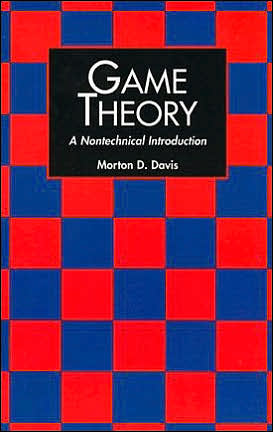 Over the course of the last week, during meals when I’m alone or when I’m waiting for the subway, I’ve been rereading a book on game theory I purchased when I was an undergraduate. It’s been bringing up some questions that I’m not assured the book I read can answer.
Over the course of the last week, during meals when I’m alone or when I’m waiting for the subway, I’ve been rereading a book on game theory I purchased when I was an undergraduate. It’s been bringing up some questions that I’m not assured the book I read can answer.This blog serves a dual-purpose. First to give updates about DaeEnterprises.net, second to put up thoughts and musings I haven't yet coalesced into essays, stories, or articles. I hope--with time--to build a group of readers eager to participate in ongoing discussion of relevant topics.
Wednesday, February 28, 2007
Game Theory & Decision-making
 Over the course of the last week, during meals when I’m alone or when I’m waiting for the subway, I’ve been rereading a book on game theory I purchased when I was an undergraduate. It’s been bringing up some questions that I’m not assured the book I read can answer.
Over the course of the last week, during meals when I’m alone or when I’m waiting for the subway, I’ve been rereading a book on game theory I purchased when I was an undergraduate. It’s been bringing up some questions that I’m not assured the book I read can answer.
Labels:
decision-making,
game theory,
probability,
society,
strategy
Subscribe to:
Post Comments (Atom)
No comments:
Post a Comment